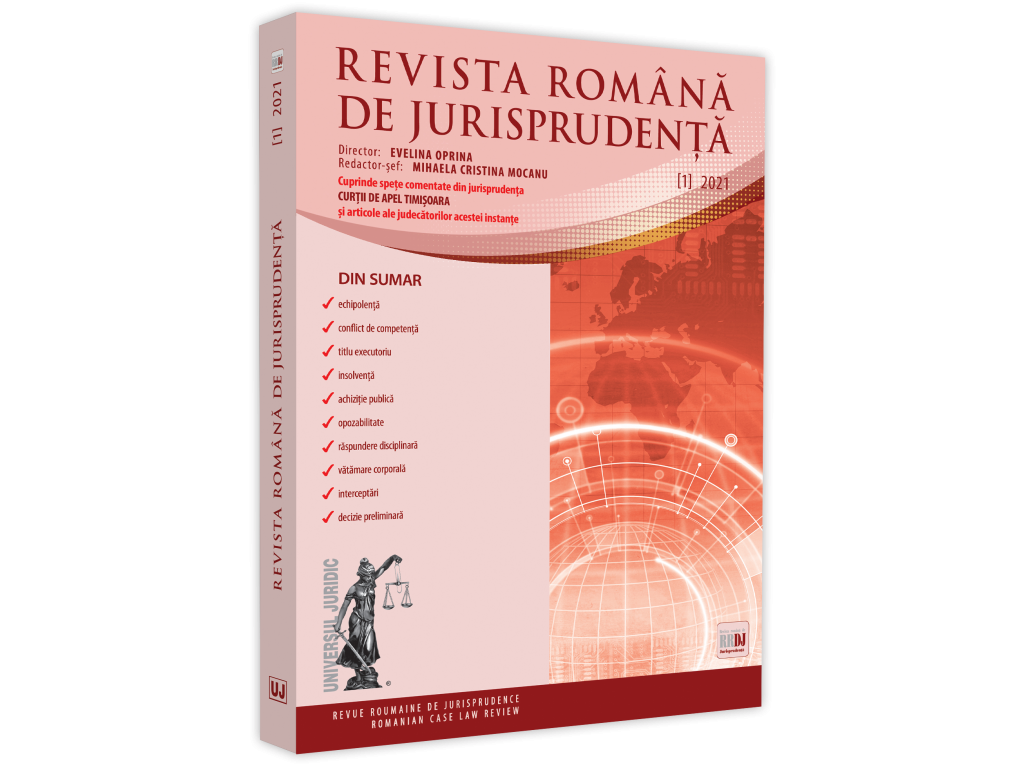Access to public interest information regarding the environment, according to the Aarhus Convention
DEZBATERI
Abstract
The Convention on Access to Information, Public Participation in Decision-Making and Access to Justice in Environmental Matters, signed in Aarhus on 25 June 1998, commonly referred to as the Aarhus Convention, was initiated under the auspices of the UNO and ratified by several states on all continents, including the United States of America, Canada, countries of the former USSR, but also by Romania, which ratified it by Law no. 86 of 10 May 2000.
This international instrument was also signed by the European Economic Community (now the European Union), which assumed the obligation to adjust its legislation to the requirements of the Convention, which thus became part of the Union acquis. In practice, the inclusion of the Convention in European law obliges EU member states to implement the Aarhus Convention through normative acts adopted by the Union, non-compliance with the Convention can be found through the specific mechanisms provided therein, but also through European law (for example, by initiating infringement procedure, with the related consequences).
Regarding the means to remedy some violations of the Convention, it is worth mentioning the international arbitration procedure included in Annex 2, but also the establishment, pursuant to Article 15 of the Convention, of a Committee for the Implementation of the Aarhus Convention (ACCC), intended to consider any complaints concerning possible violations of this treaty, (complaints by the signatory parties or the Committee secretariate or even the public, within the meaning given to this notion by the Convention).
Keywords: The Aarhus Convention, access to information, environmental protection, infringement








